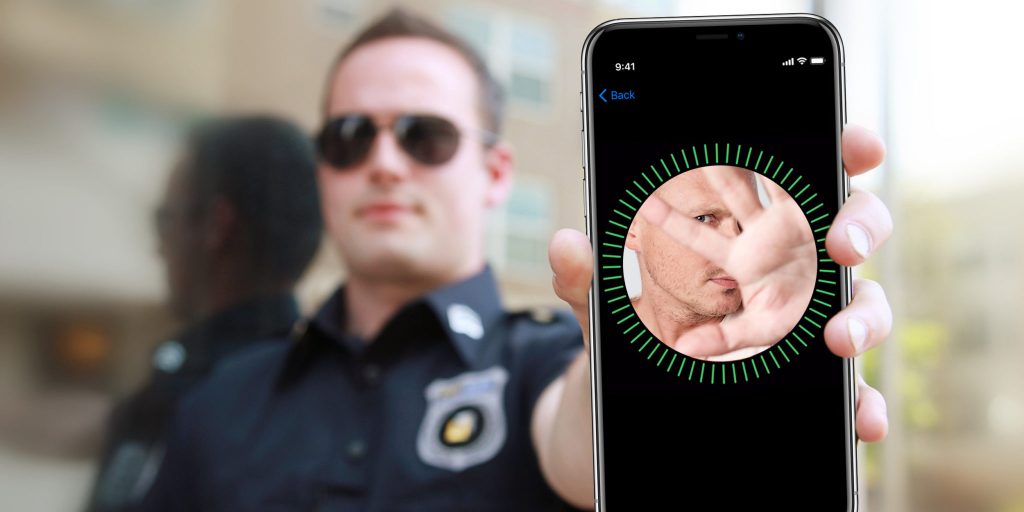We lock our phones so that other people can’t access what is on them. We have personal contact information on our cell phones, pass codes, photos, even bank cards are kept on our phones — along with access to apps that provide a lot of information about where we shop, where we bank, and who our favorite people are in the world.

And while it might sound a bit shocking to think that police officers can force you to unlock your cell phone by using Face ID or Touch ID, just picture a criminal who has been arrested and could have photos on their device that would lead them to a missing child, or a weapon that was used in a shooting that could lead to an arrest, or a person’s of interest who was involved in a crime that took place. It could prove beneficial in these types of circumstances. So, if the police need to access data on a cell phone from a person who has been arrested, can they force them to unlock their phone?
The Big Picture and Privacy Concerns
The short answer is yes. However, it does raise privacy concerns. And it isn’t that clear cut, because the big picture is that a police officer must get a search warrant first, so there is an added layer of protection thanks to the Supreme Court. Innocent until proven guilty right? Forcing someone to give up a passcode or unlock their cell phone would force them to give up their constitutional rights and actually violates the Fifth Amendment right against self-incrimination, which as a reminder states that no one shall be compelled in any criminal case to be a witness against themselves.
Still a Long Way to Go
It seems that there is still a long way to go before an agreement is made. And there are many varying legal opinions out there about what to do. You might be better off just using a passcode rather than a fingerprint or face recognition to unlock your cell phone until a definitive court decision is made.
